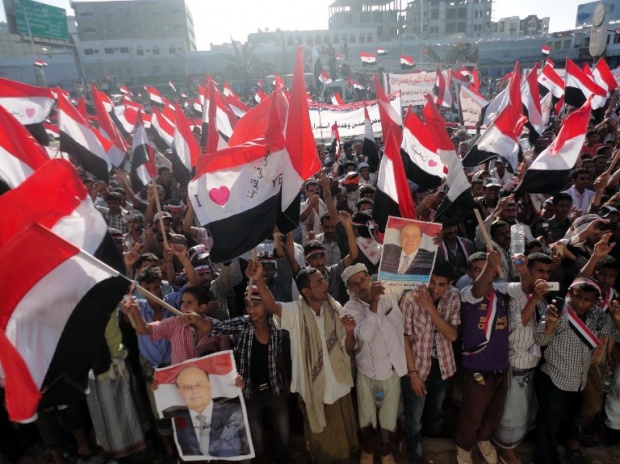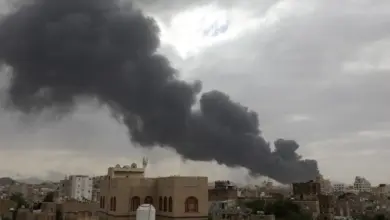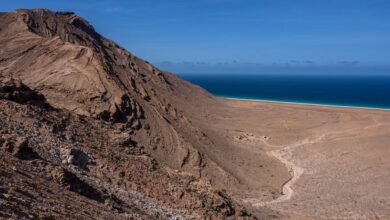
Security forces in the southern Yemeni city of Aden arrested 10 members of an Islamist partner in the internationally-recognized government, the Islah party said on Wednesday.
Aden is dominated by local forces backed by the United Arab Emirates, a key member of the Saudi-led coalition that intervened in Yemen’s civil war in 2015 to restore President Abd-Rabbu Mansour Hadi to power but is hostile toward Islamists.
The arrests could raise tension within the coalition fighting the Iran-aligned Houthi movement and forces loyal to ex-president Ali Abdullah Saleh who seized much of northern Yemen, including the capital Sanaa, and drove Hadi into exile.
Islah said security forces raided the home of its number two man in Aden, Mohammed Abdel-Malek, and arrested him, along with a member of the party’s local Shura Council as well as a local militia commander.
Security forces also closed down the party’s office in the al-Qaloua district of Aden, Islah said in a statement.
A security source in Aden confirmed four people were arrested and said the move was related to the assassination of a Salafist imam in Aden on Tuesday by a bomb planted in his car.
While both in the Islamist camp, Salafists and Islah are at odds as some of the former back a secession of south Yemen while the latter wants the Arabian Peninsula state to remain intact.
It was unclear if the arrested Islah members had been formally charged.
“(Islah) directs a call to public opinion, the government and the coalition demanding they shoulder their responsibility to swiftly release brother Abdel-Malek and his colleagues and to stop these arbitrary measures,” Islah’s statement said.
With thousands of fighters deployed on battlefronts against the Houthis, Islah has been an important ally of Hadi and the Saudi-led coalition trying to reinstate his government.
But Islah, seen as linked with the Muslim Brotherhood, has come under pressure since a rift erupted between Qatar and some Arab states, including the UAE and Saudi Arabia, in June over allegations Qatar backs Islamist militants. Qatar denies this.
Since the coalition intervened in Yemen, Islah has tried to distance itself from the Brotherhood in an effort to ease Gulf rulers’ anxiety about its Islamist ideology.
The Brotherhood denies accusations from conservative Arab governments of involvement in terrorism, saying it seeks change only by peaceful means.



